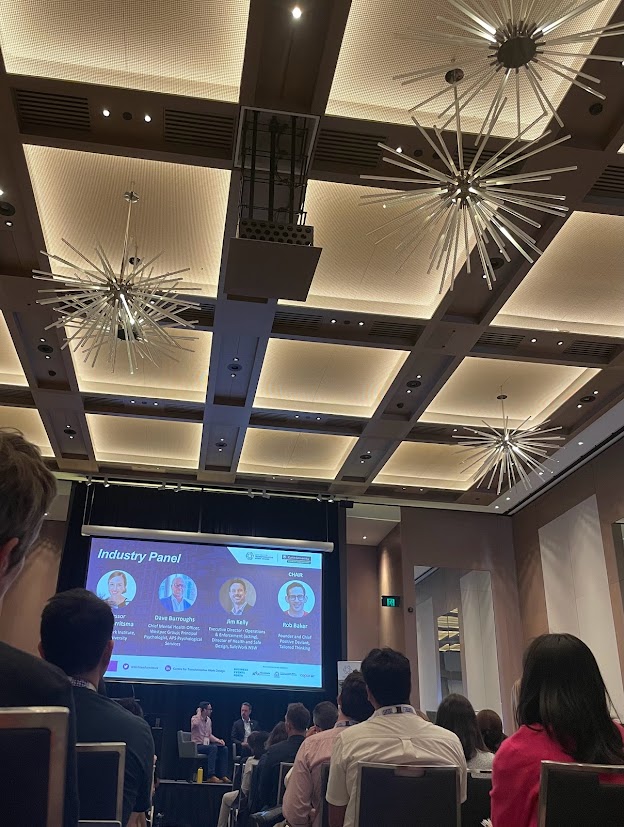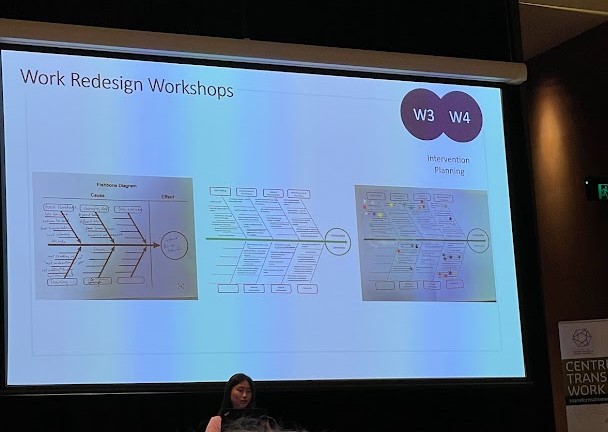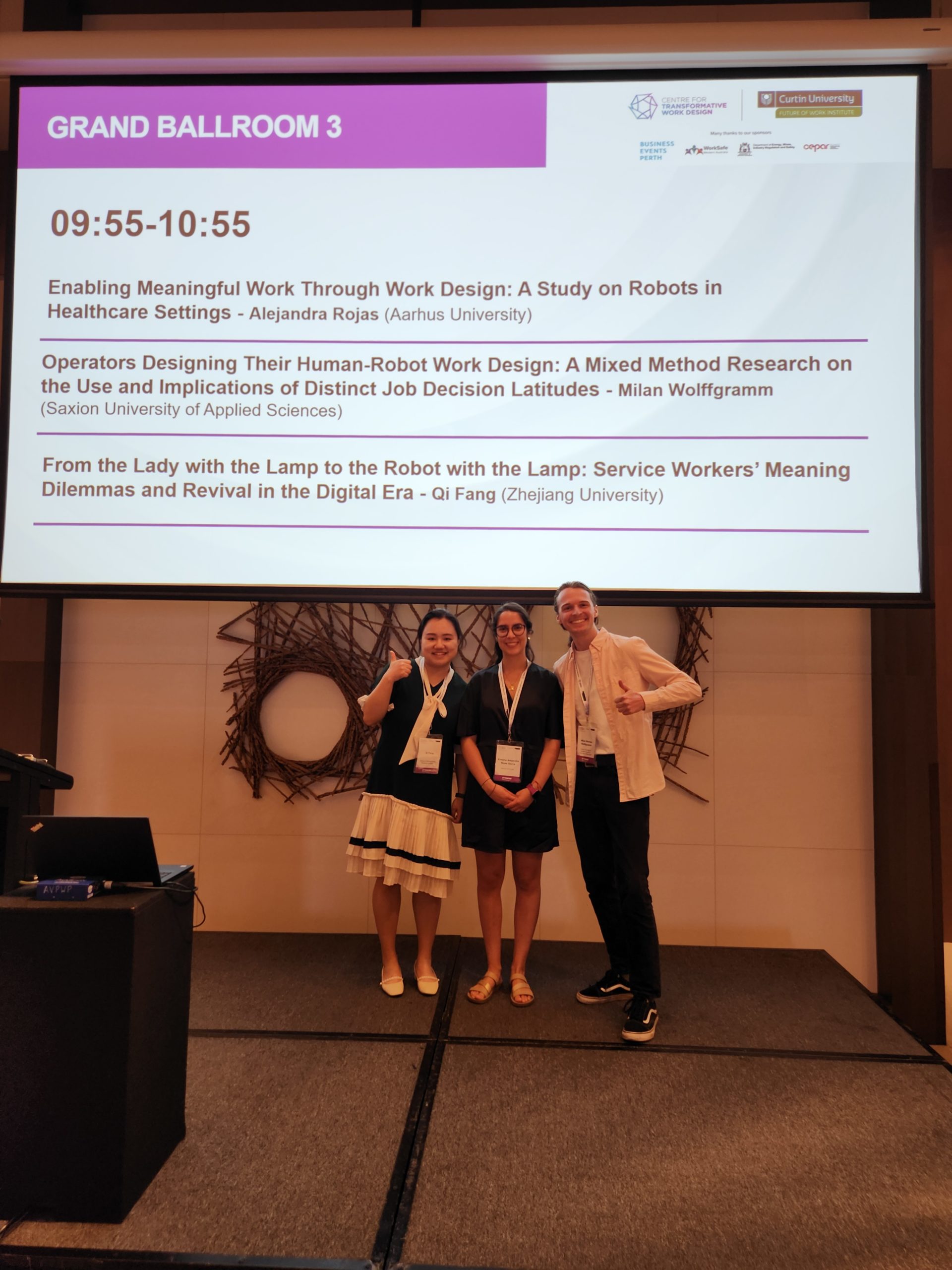Transforming Healthcare Work: My experience at the CTWD Conference 2024
On February 13th and 14th I attended the Centre for Transformative Work Design Conference 2024 in Perth, Australia to enjoy all the presentations and share my research on work design as a catalyst to foster meaningful work during the implementation and use of mobile telepresence robots in healthcare settings. This conference set the stage for dynamic conversations on cultivating healthier, happier workplaces through the art and science of work design.
EXPERT PANELS
I had the chance to attend different panels of experts where topics related to work design were discussed. It was great to learn from leading scholars and practitioners in the field of work design, gaining invaluable insights and practical knowledge from those at the forefront of innovation.
For example, Rob Baker, Founder of Tailored Thinking, led an engaging conversation with a panel of experts who delved into the current landscape of workplace quality improvements. Dave Burroughs, Chief Mental Health Officer at Westpac Group, highlighted the importance of shifting workplace mental health discussions towards prevention and offered practical advice for successful implementation. Professor Karina Jorristma, a Professor of Practice at the Future of Work Institute, Curtin University, shared insights from her experience implementing the Thrive at Work model and SMART work design across various organizations. Finally, Jim Kelly, Executive Director – Operations & Enforcement at SafeWork NSW, provided a regulatory perspective, discussing innovative initiatives to foster better work designs within industries.

Picture taken by Alejandra Rojas
SYMPOSIUMS
Symposiums were held for group presentations that were topic-related. I was especially interested in a symposium about “A practical approach to SMART work (re)design in the care sector” where multiple projects were presented. However, the one from Dr Jane Chong (University of Western Australia) was particularly interesting for me as it showed the outcomes of a participatory work redesign intervention and its success in alleviating job demands within an aged-care environment, which is related to my Ph.D. project as I am exploring how mobile telepresence robots (MTRs) can/should assist healthcare workers in settings like a nursing home. It was wonderful to explore real-world examples of successful work redesign initiatives that have enhanced employee well-being and organizational performance.

Picture taken by Alejandra Rojas
MY PRESENTATION
My presentation “Enabling Meaningful Work Through Work Design: A Study on Robots in Healthcare Settings” was on the 14th of February in a timeslot shared with Milan Wolffrgamm and Qi Fang, PhD colleagues who are also focused on the use of technologies and work design.
MTRs enable remote interactions between healthcare workers, patients, and family members in healthcare settings. However, it remains unclear how their implementation could affect meaningful work in such settings. Our qualitative study aims to investigate the types of interactions afforded by MTRs in healthcare and their implications on meaningful work. The data consisted of 25 interviews with and observations of healthcare professionals in three types of settings, where two different MTRs were tested. Findings show that substitution and coexistence interactions afforded by MTRs play a multifaceted role in meaningful work, as they simultaneously promote and inhibit it. However, we also find that meaningful work can be promoted through proper work design. Recognizing work design as a catalyst for fostering meaningful work during the implementation of MTRs in healthcare settings offers practical guidance to practitioners seeking to design, develop, implement, and utilize these robots while prioritizing meaningful work.

Picture taken by Henry Gunson
Overall, it was a great conference with lots of learnings and insights that helped me understand work design from different angles. Thanks to the organizers and sponsors!


Add a Comment